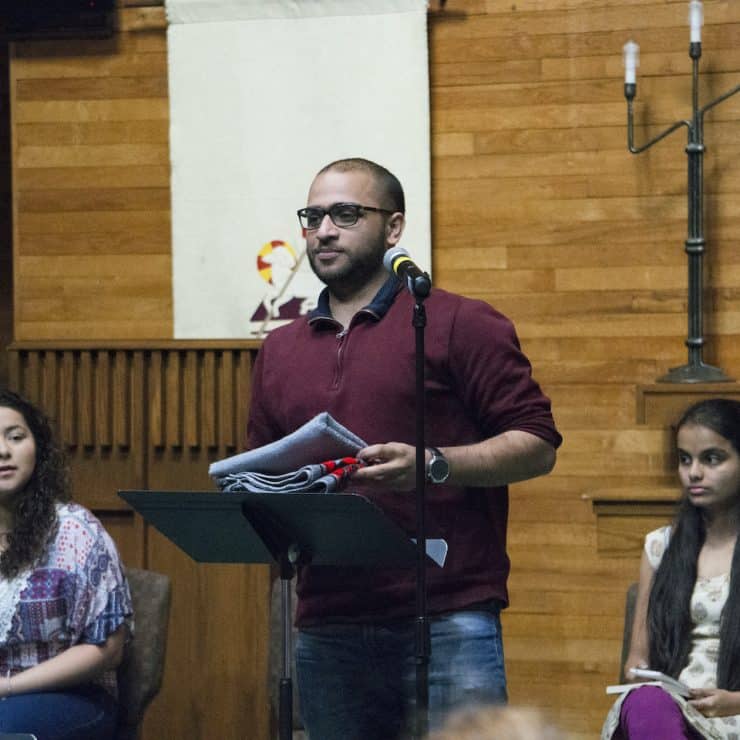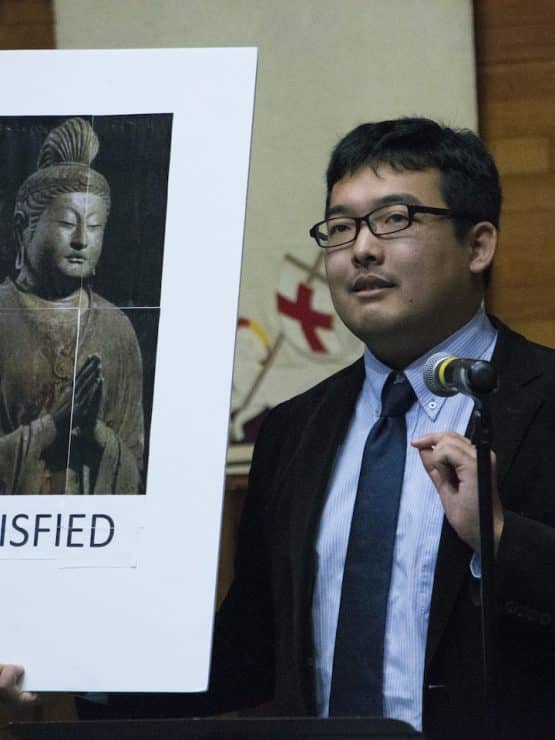
Religion
Religion courses at MU develop a deeper understanding of the “big questions” that occur at the limits of human experience. Coursework in religion is valuable in three respects: 1) It broadens your intellectual horizons and can be spiritually fulfilling, 2) This program trains you in research, critical thinking, and ethical reasoning, which are all skills desired by employers today, no matter the industry, 3) If your goal is a career in ministry or graduate study of religion, this major gives you the required foundation in theory, method, and tradition required for further study.
Common Career Paths
Basic knowledge about other cultures and religious perspectives is indispensable. Religion majors have successfully gone on to professional jobs in:
- Business
- Counseling & Social Work
- Education
- Journalism
- Law
- Medicine
- Ministry
Common Salary Ranges for Graduates
As mentioned above, there’s a long list of career opportunities for those with Religion degrees. But, the U.S. Bureau of Labor Statistics reports the average annual salary for the following positions (which may require additional education) in North Carolina in 2021:
- Philosophy and religion teacher: $88,260
- Social worker: $57,880
- Religious workers: $54,340
- Clergy: $57,230
- Directors of religious activities and education: $52,880
Average Tuition Cost
The average cost for an incoming residential freshman to attend MU is less than $18,000 – similar to the cost of attending one of the big-box public schools, but with the enhanced value of a highly-regarded private school with a 12:1 student-to-faculty ratio.
While tuition varies, depending on a student’s financial aid package, it’s important to know that the average financial award for an incoming residential freshman at MU is more than $34,000.
Financial Aid & Scholarships
More than 97% of MU students receive some form of financial aid, with the University offering more than $24 million annually to students for scholarships. If a student is active military, family of active military, or a veteran, they may also qualify for MU’s military education benefits.
Interested in Methodist University’s Religion program?
Just reach out to Dr. Kevin Hoffman using the contact info at the bottom of the page. If you’re ready to apply today, click the button below!
Frequently Asked Question
Yes. Religion courses at MU develop a deeper understanding of the “big questions” that occur at the limits of human experience. Coursework in religion is valuable in three respects: 1) It broadens your intellectual horizons and can be spiritually fulfilling, 2) This program trains you in research, critical thinking, and ethical reasoning, which are all skills desired by employers today, no matter the industry, 3) If your goal is a career in ministry or graduate study of religion, this major gives you the required foundation in theory, method, and tradition required for further study.
Major Requirements
B.A. Foreign Language Requirement
12 credits
Students must either demonstrate competence in a foreign language up to the 2020 level, or take four semesters of foreign language, two of which must be in the same language.
Textual Studies Course Requirements
6 credits
| REL 2010 Survey of Hebrew Bible (3) | REL 2020 Survey of the New Testament (3) |
Breadth Course Requirements
6 credits
| REL 1500 Religions of Asia (3) | REL 1510 Monotheistic Religions (3) |
Church History Course Requirements
6 credits
| REL 4050 Early Christianity (3) | REL 4060 Reformation Europe (3) |
Electives
Select six courses (18 credits) from the following course list:
| PHI 3010 History of Western Philosophy (3) | REL 3020 Jesus and the Gospels (3) |
| PHI 3300 Philosophy of Religion (3) | REL 3220 Religious Literature (3) |
| REL 1030 Introduction to Religion (3) | REL 4040 Myth and Culture (3) |
| REL 1050 Religion in an Age of Science (3) | REL 4850 Special Topics in Religion (3) |
| REL 1070 Religion and Film (3) | REL 4990 Independent Study in Religion (3) |
Minor Requirements
Select five Religion elective courses (15 credits), including 6 credits at the 3000 level or above.
Contact
Kevin Hoffman, Ph.D.

